
What Eric Schmidt REALLY SAID about the future of Android and Chrome OS
Eight days ago, Google dropped an atomic bomb on the Android Army, with Andy Rubin's sudden departure as commander-in-chief. Sundar Pichai, who is responsible for Chrome and Apps, assumed Android leadership. The change led to much speculation that the operating system would sometime soon merge with Chrome OS. As the fallout spreads, an answer arrives: The question is irrelevant.
Google Executive Chairman Eric Schmidt tells reporters in India that Android and Chrome OS will not merge but converge, says Reuter's Devidutta Tripathy. But there's no quote, just paraphrase, which worries me about context. Fortunately, there is a video that provides context and reveals a different priority: Chrome.
Google Chromebook goes international
Early this morning, Google announced a massive expansion of Chromebook distribution, including new countries and more Best Buys in the United States.
"Starting Tuesday, the Acer, HP and Samsung Chromebooks will begin rolling out in Australia, Canada, France, Germany, Ireland and the Netherlands", Caesar Sengupta, Google product management director, says. "To help improve computing for organizations, we’re rolling out Chromebooks to businesses and schools in these same countries as well".

What's up with Google's Spring cleaning?
I sometimes wonder if Larry Page is a neatness freak. After all, throwing out stuff defines his nearly two years back as chief executive. He has chucked more Google products than junk I discard from our apartment -- there's no hording around here. Nor at Google. But the last 24 hours is simply unprecedented for changes that broadly affect customers and partners. This Spring cleaning is something to behold.
Let's start with today. Jeff Huber is out as head of Google Mapping and Commerce. He explains: "Finishing up my first decade at Google, and excited to return to my startup roots and begin the next one at Google X! Let me know what you'd like to see Google X do next". The Wall Street Journal says there's more: Google Maps will split from Commerce and become part of Search and the other folds into Advertising.
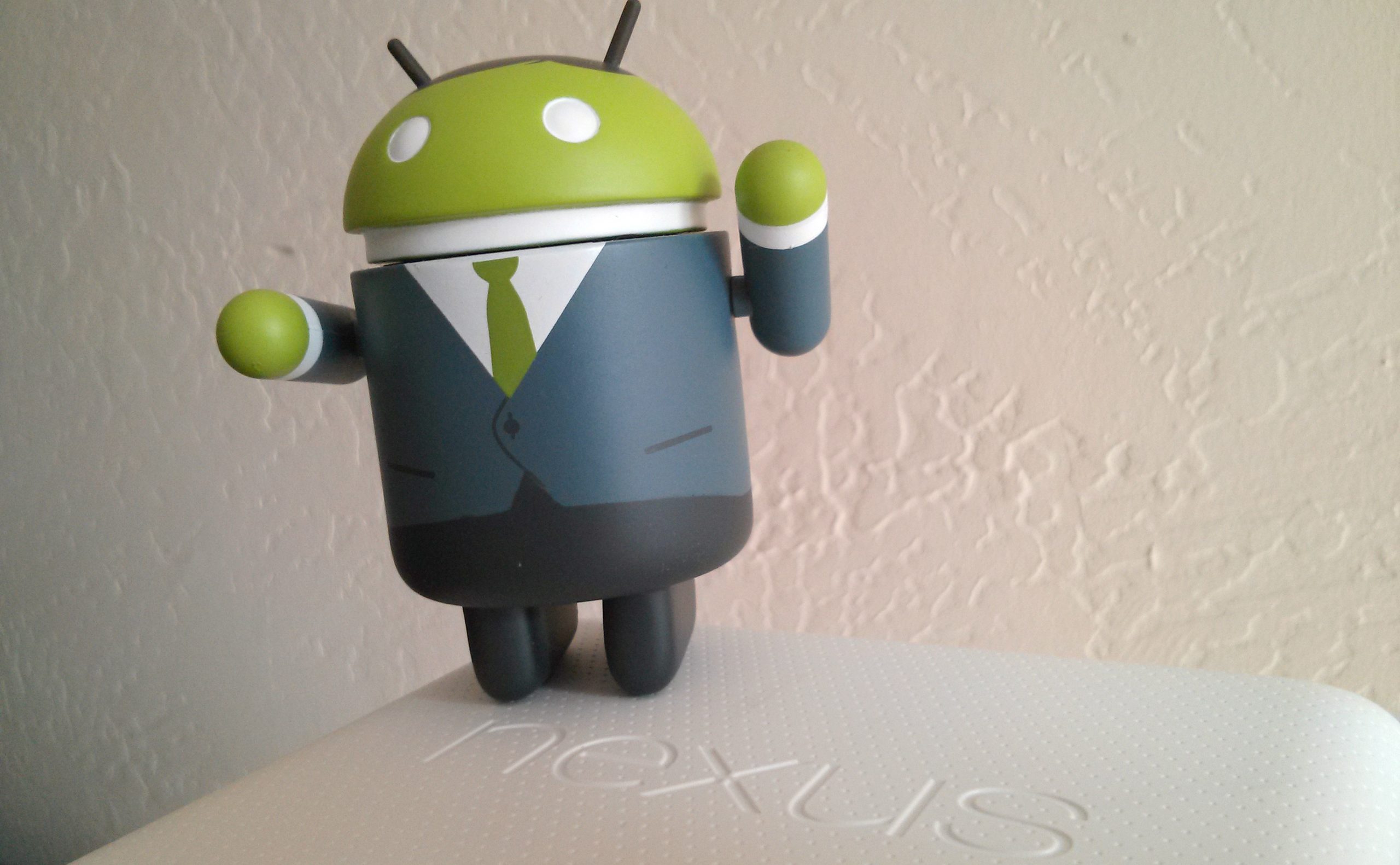
Google CEO Larry Page's memo about Android leadership changes
This afternoon, in a rather shocking and unexpected move, father of Android Andy Rubin stepped down -- or was forced to -- in a leadership change sure to shift the direction of Google platform development. Sundar Pichai, senior vice president for Chrome and Apps, assumes responsibilities for Android.
Larry Page broke the news, offering praise alongside Google cofounder Sergey Brin for Rubin's enormous contribution. The follow memo follows.

Andy Rubin steps down as Google Android chief
"Holy crap!" That was my response to colleague Alan Buckingham, when he informed me that Andy Rubin would no longer lead Android development. He's the father of Android! But green robot parent no more. The news is simply shocking and hints of some back-room drama and possible disagreement about future Google platform development. I say that because Sundar Pichai, the man behind Chrome OS, adds Android to his responsibilities.
For some time, Android and Chrome OS users -- me among them -- have posed quandary: "Why support two operating systems?" Google should bring together Android and Chrome OS. I wouldn't be surprised if that is the go-forward edict from Google on High, perhaps something Rubin wouldn't support. Yes, I speculate, but the man is passionate about his child, which Google acquired in 2005.
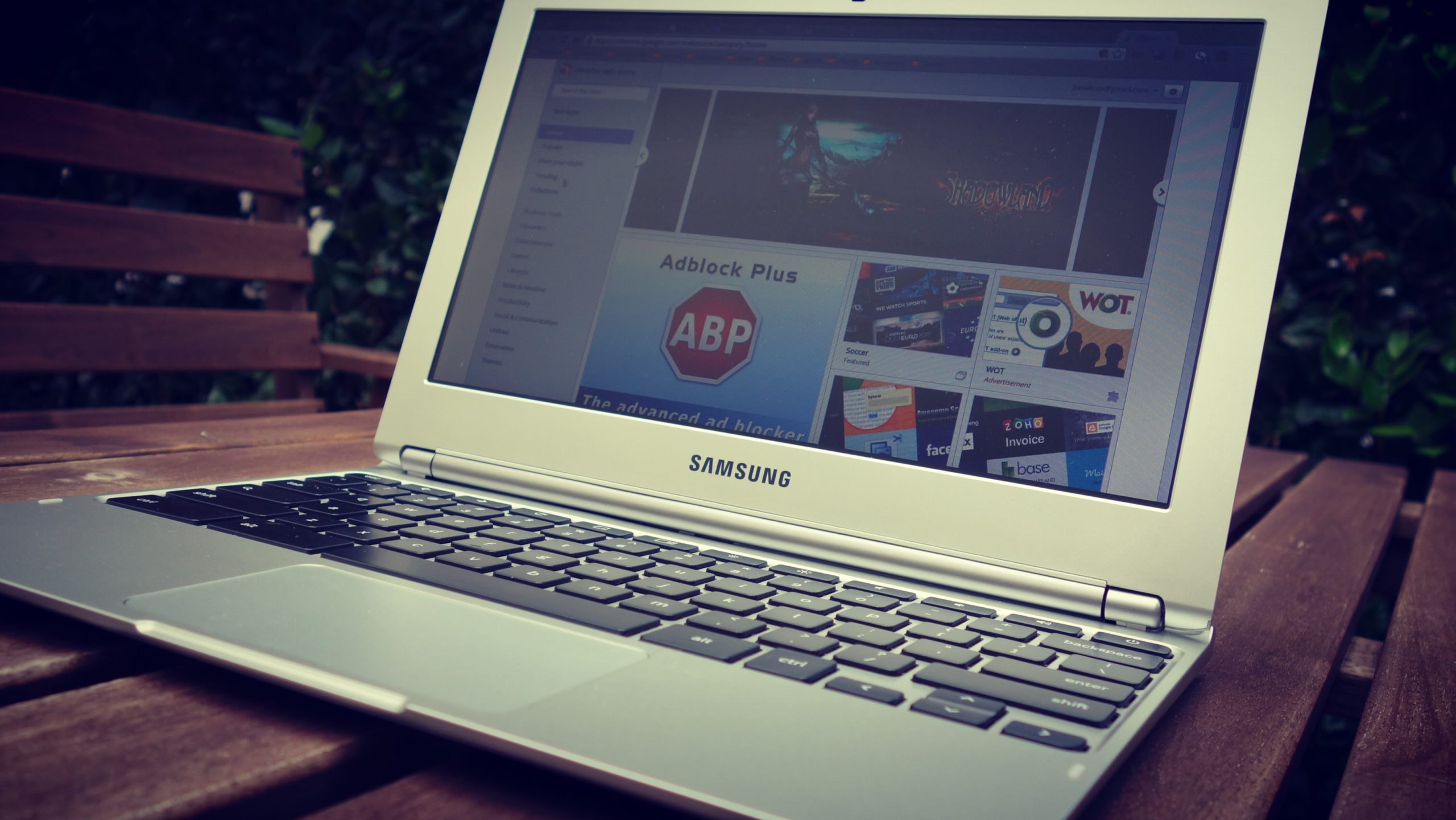
Finally, you can stream Netflix on ARM Chromebooks
I wasn't going to write this as a separate story, resorting to Google+ and Twitter posts instead. But, hey, I'm Mr. Chromebook over here and would be remiss not informing the two people who somehow missed the news (You know who you are). Drum roll. Finally, four months after Samsung released the Arm Chromebook, you have Netflix. Stream it, baby, because you finally can.
"Today we launched HTML5 video playback for streaming content from Netflix for the ARM-based Samsung Chromebook, so you can now enjoy your favorite Netflix shows & movies", according to Google. There's not lots of fanfare in the statement, but I expect some from those of you who can finally couch-potato before your Chrome OS toy.
What I really think about Google Chromebook Pixel
Second in a series. Fourteen days using Google's first computer, my decision is made: I would buy one and will someday (taxes are brutal, so my options are limited short-term). I firmly believe that most buyers willing to spend $1,299 (32GB WiFi) or $1,449 (64GB 4G LTE) will be satisfied with Chromebook Pixel. That's because I presume they wouldn't dole out that much without really examining how the computer would fit their lifestyle; also, Google seeks the same people coming from Windows who might buy MacBook Pro 13-inch.
Seven days ago, in my first-impressions review, I looked at the overall experience and price benefits from the perspective of hardware. Here, I start to answer larger question: Can Pixel be your main and only machine? For most people, the answer is an unequivocal "No". But "most people" isn't Google's target market.
Whoa, you really don't want Google Chromebook Pixel
On February 21, Google started selling its first computer, Chromebook Pixel, which I called a "status symbol" over the weekend. In typical fashion I asked "Will you buy Google Chromebook Pixel?" There surely is a market for the laptop somewhere, but not among the respondents to our poll.
Seventy-seven percent of you answer "No". That's among the highest percentage ever to one of my polls. If there's Chromebook Pixel enthusiasm, it surely isn't from BetaNews readers. Just 8 percent of respondents will buy the Chrome OS laptop "as soon as available in my country". Only 16.5 percent plan to buy Chromebook Pixel ever. So has Google got a flop? No way, Jose.
Chromebook Pixel is a status symbol
Google's first computer isn't about sales but status. Critics who lambast Chromebook Pixel as an over-priced web browser wrapped in pretty hardware miss the point. Badly. The laptop will sell, but not in mass-volume because it's not meant to. Is Lamborghini about sales or style? I ask not seeing much commentary about how the Italian sports car is a failure because Ford sells millions more Explorers.
Chromebook Pixel is the luxury car of computers running Chrome OS and perpetually connected to the cloud. Google's beauty is a status symbol for people willing to plunk down $1,299 or $1,449 and makes, along with newer Nexus devices, a bold brand statement: Google is a premium brand and the company a real innovator. For the people who love the brand and want to identify with it, like all those fanboys adoring Apple with their cash, Chromebook Pixel is an easy sell.
Will you buy Google Chromebook Pixel?
That sound you just heard was Google slapping Apple across the face. Today the search and information giant unveiled and starting selling high-end portable Chromebook Pixel. By just about every measure, Google guns for Apple in its dominant market -- premium PCs, or those selling for $1,000 or more. When rumors circulated about the computer, I opined: "Chromebook Pixel looks like MacBook Pro to me". The impression is stronger now that the real deal is here -- from form factor to price, either $1,299 or $1,449.
Should Apple sweat about Chromebook Pixel? I would. Following a years-long retail trend, Apple share of PCs selling for $1,000 or more was over 90 percent in 2012, according to NPD. Stephen Baker, NPD's vice president of industry analysis, asks if Google is "more trying to compete with Apple and high-end windows machines for premium consumer and maybe corporate?" I answer: Yes. What I want to know: Will you buy Chromebook Pixel? But more importantly: Would you buy Chromebook Pixel instead of 13-inch MacBook Pro?
Chromebook Pixel is Microsoft's worst nightmare come true -- and Apple's, too
The rumors were true! Google developed a touchscreen Chromebook for release this year. Like today! No one should misunderstand what the computer means competitively. Already, four Microsoft Windows partners produce Chromebooks -- Acer, HP, Lenovo and Samsung. Chromebook Pixel promises to do for the Chrome OS platform what Nexus devices did for Android smartphones and tablets: Establish a reference design for hardware partners and provide developers base system to develop apps for the platform. But it's also a competitive move against PCs running OS X or Windows and Google pushing Chrome OS into the premium notebook market.
Today Google unveiled Chromebook Pixel, following weeks of rumors. The company also extended a vision for Chrome OS. Bottom line: Commitment to the operating system is strong. The search and information giant briefed journalists in different cities. I had to turn down an invite to the San Francisco briefing because of family matters. Do I feel left out! But, hey.
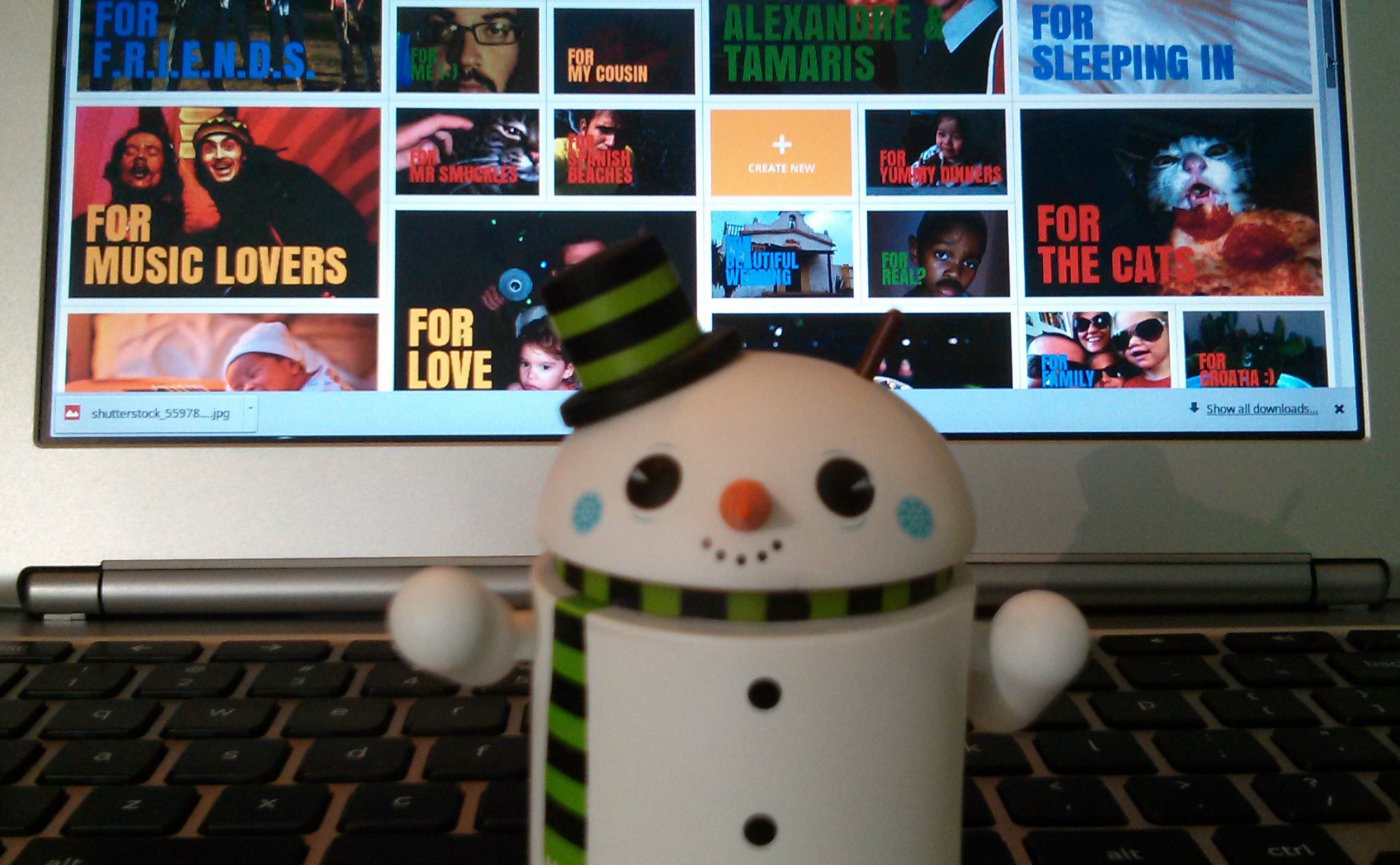
Why I love Chromebook
Third in a series. For Valentine's Day, Wayne Williams and I explained why we love Kindle and Surface Pro, respectively. We've decided to extend the concept into an ongoing series, which I continue about Chromebook and in many more ways Chrome OS.
My Chromebook journey began in December 2010 when Google dispatched 60,000 Cr-48 test units. I used the computer as my primary PC for a week, but no more, being a concept. But, then, my 11.6-inch MacBook Air failed in March 2011, and I reverted back to the Cr-48 during the emergency. In June 2011, Samsung released the Series 5 Chromebook, which I used as my only PC for two solid months. But performance couldn't meet my needs -- that is until the successor, the 550, launched in May 2011. I abandoned MacBook Air and didn't look back. Performance and features met my needs. I traded performance for better ergonomics when switching to the ARM-based Series 3 Chromebook in October.

Internet Explorer is the last browser standing
Opera's decision to change rendering engines means three of the top five browsers will use Webkit. Internet Explorer stands alone, and that is the wrong place to be. In September 2009 post "Microsoft should dig deep into Webkit to keep Google from Framing IE", I suggested radical change, which unsurprisingly was ignored. Since, Chrome usage share grew from 2.9 percent in August 2009 to 17.84 percent in January 2013, according to Net Applications. Meanwhile, IE share fell from 66.97 percent to 55.14 percent.
But the real battleground, and where upstarts gobble up territory, is mobile -- yeah smartphones and tablets. While the category accounted for just 11.8 percent browser usage share in January, the majority is Webkit -- 61.02 percent just for Safari. Internet Explorer: 1.34 percent, or less than Chrome (2.02 percent). Android browser is 21.46 percent. As I expressed three-and-a-half years ago: "Microsoft should answer WebKit for WebKit, by releasing a new browser based on a new rendering engine; put on the IE brand and ship it for desktop and mobile". There's still time, but fast running out.
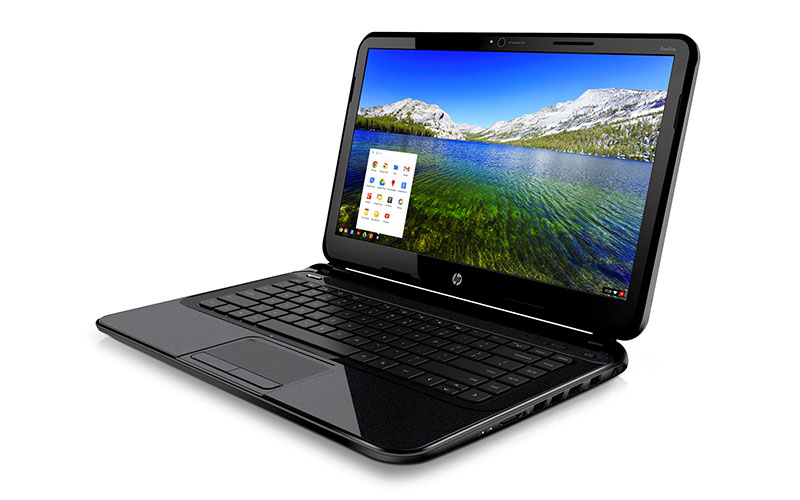
HP releases the chunkiest Chromebook
Is it my imagination, or does each new Chromebook get bulkier than the last? Today HP joined the Google operating system family, introducing the heaviest model (1.8 kg/3.96 pounds) with largest display (14 inches). Lenovo's ThinkPad Chromebook, announced in mid-January, is a tad lighter but the Acer C7, with smaller screen, is thicker. Perhaps the problem is this: PC manufacturers adapt low-cal Windows notebooks to Chrome OS; new Acer, HP and Lenovo models are more licensing plays than any attempt to innovate.
For PC manufacturers looking to offer something other than Windows, pay nothing for an operating system or capitalize on Google's bulging brand name, Chrome OS is enticing option. The lack of real investment, which demonstrates no sincere commitment, is wrong way to win or satisfy customers. Samsung proves the better Chromebook partner, by at least making some effort around system design, including adapting ARM processors.
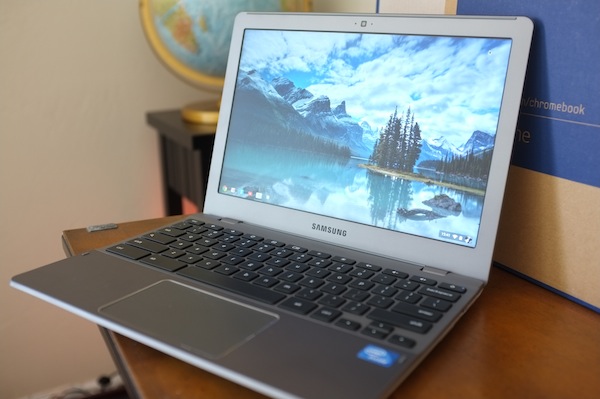
Google invites you to hack Chrome OS
Google is moving forward with Chrome, both the web browser and the operating system, quickly and seems to be gaining traction. Sure, the browser is popular, but the OS struggled early on, but new notebooks, err...Chromebooks, have been getting a lot of attention, including TV ads in the United States.
However, the search giant has learned that security is pretty important to the end-user, and probably more so to those looking at these computers, because buyers probably tend to be more on the "techie" side. That is why Google has annually invited people to "hack" Chrome in an effort to find and fix flaws.
